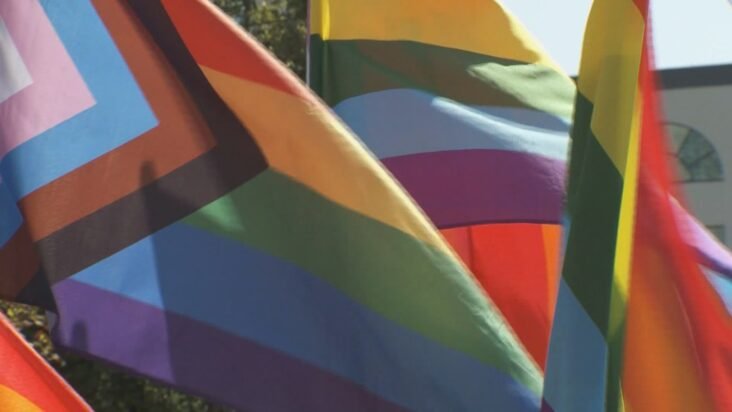

Canada, it found, was among the few countries where support for rights and visibility appeared to register “precipitous drops,” Ipsos vice-president of public affairs Sanyam Sethi said.

“What really stood out to me was how starkly Canadians are changing their opinions,” she said.
“On some of these support aspects the drops in Canada are the highest across all 26 countries we have trend data for.”
One area where attitudes appeared to have shifted was support for LGBTQ2 visibility.
While 49 per cent of respondents agreed with people being open about their sexual orientation or gender identity, that still put Canada in the bottom 10 of countries measured.
What’s more, the number was down by 12 per cent from 2021.
Similarly, the poll found support for LGBTQ2 people showing affection in public (kissing or holding hands) at 40 per cent, down eight points from 2021.
Just one-third of respondents supported more LGBTQ2 characters on screen, down 10 per cent from 2021.
Annie Ohana, a B.C. teacher who also serves on the board of Surrey Pride said the numbers were troubling.
“You can exist, but don’t exist in front of me,” she said.

Ohana said she believed the data reflected an aggressive campaign targeting the LGBTQ2 community that has manifested in protests against SOGI-123 in schools, drag events and supports for transgender people.
“You see the language of ‘groomer’ and ‘pedophile’ out there, being put on everybody,” Ohana said. “I think that’s really what’s leading to people thinking, ‘I might have a problem with this.”
The survey contained several other findings of concern to the LGBTQ2 community.
Just half of Canadian respondents to the survey supported openly gay lesbian, gay and bisexual athletes in sports teams, down 11 points from 2021. Just one in five respondents supported transgender athletes.

It also found fewer Canadians are speaking out against prejudice. Just under one in three respondents had spoken out against LGBTQ2 intolerance — about on par with the international average, but down seven points since 2021.
Just under half of respondents supported teenagers receiving gender-affirming care such as counselling and hormone replacement treatment with parental consent.
Sethi said the report wasn’t all bad news for LGBTQ2 rights.
Seventy-five per cent of Canadian respondents backed same-sex unions, four points above the global average, while 70 per cent supported the rights of same-sex couples to adopt, seven points above the global average.
The Ipsos poll was conducted between Feb. 23 and March 8 2024, among 18,515 adults in 26 countries. The samples consisted of between 500 and 1,000 respondents in each country, including 1,000 in Canada, with data weighted to reflect each state’s demographic profile based on census information. The margin of error for the Canadian sample was +/- 3.5 per cent.





